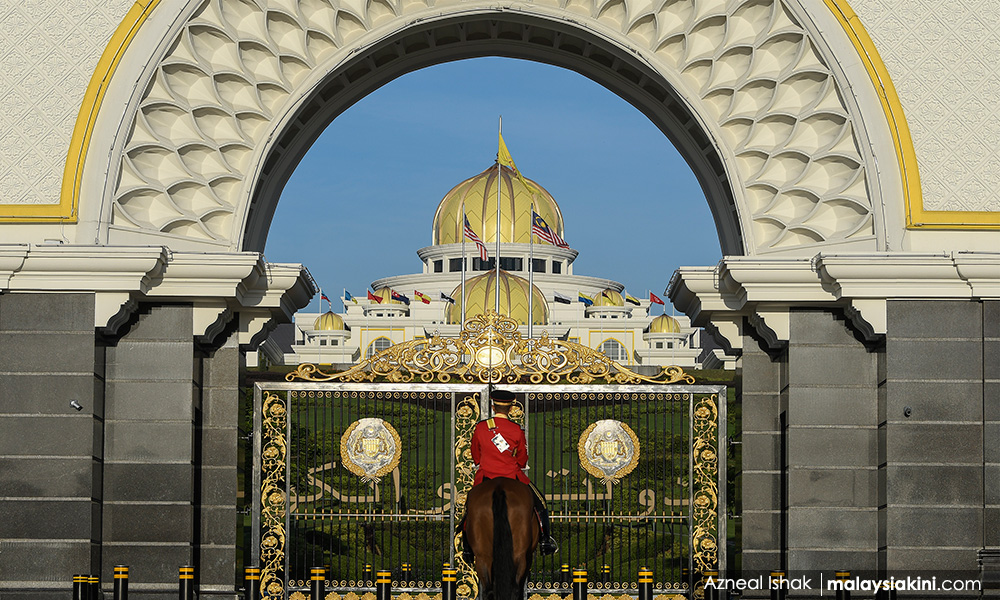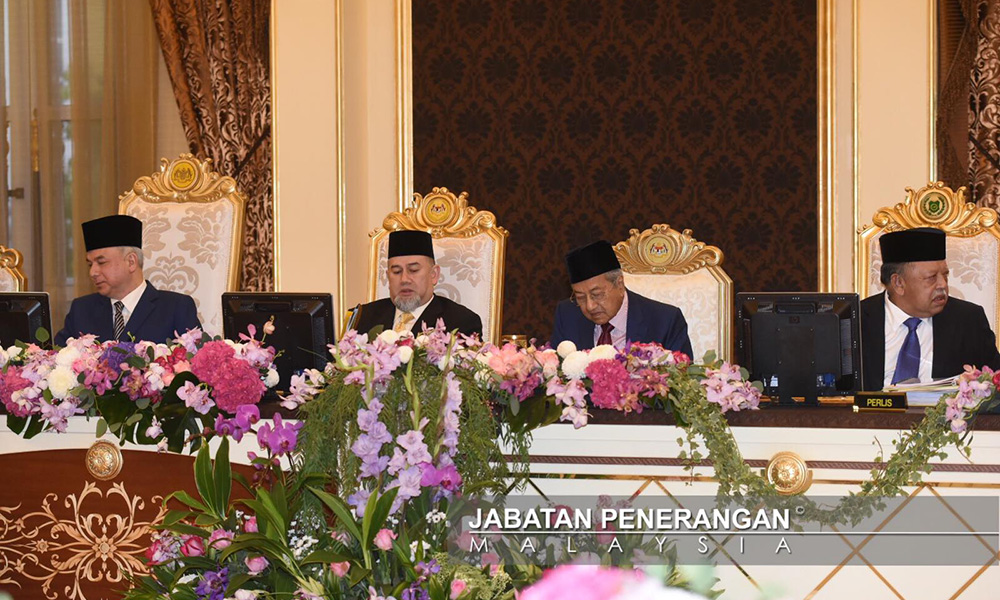COMMENT | The battle royale that is shaping up in Johor over the choice of menteri besar may look like a tussle between the Pakatan Harapan government and the monarchy over a constitutional principle.
The prime minister has maintained that the role of appointing the new Johor menteri besar lies with the party that won the election, not with the sultan of Johor. As our constitutional monarchy goes, the PM is right, of course, except that since the political tsunami of 2008, Pakatan (meaning Pakatan Harapan and its predecessor Pakatan Rakyat) has blinked twice in this battle royale.
The squabble within Pakatan over the choice of MB for Perak and the deputy MB for Selangor in 2008 had set a bad precedent. If their leaders had taken a stand like that displayed by the PM in the current drama, they would have simply put forward their candidates before the sultan for endorsement, as is required in our democratic system.
Instead, the Pakatan leadership vacillated and in so doing, demeaned our parliamentary democracy by allowing the sultans to make the final choice of menteri besar in 2008.
In our democratic system and according to the Federal Constitution, the Yang Di-Pertuan Agong and the sultans merely endorse the executive list that is put before them by the ruling coalition. In Perak and Selangor in 2008, Pakatan handed over this prerogative to the respective sultans.

This has since proven to be a bad precedent and one which has led to this present predicament in the various states whenever a menteri besar is to be appointed. Thus, we now see the respective sultans playing the role of executive rulers instead of constitutional monarchs.
This pandering to the sultan over the choice of menteri besar in Selangor was repeated in 2014 and unfortunately, this has added to the routinisation of “conventions” over the choice of MBs.
According to one of the most important writers on the subject of constitutional monarchy, Walter Bagehot, the monarchy merely symbolises the unity of the national or in our case, state community; from the point of view of political power, the sovereign in a constitutional monarchy has only three rights, "the right to be consulted, the right to encourage, the right to warn".
Malaysia’s most distinguished jurist, Mohamed Suffian Hashim in An Introduction to the Constitution of Malaysia, spells out the role of the rulers and governors as "acting in accordance with advice":
“A ruler, though sovereign, has no autocratic powers. A ruler and similarly a governor must act in accordance with the advice of the state executive council or of a member of the council (usually the menteri besar) acting under the general authority of the council, except as is otherwise provided by the federal or state constitution […]

"The ruler or governor is entitled, at his request, to any information concerning the government of the state which is available to the executive council. The ruler or governor is not a member of the executive council. Members of the executive council meet only among themselves, and thereafter the menteri besar or the chief minister submits the executive council’s advice to the ruler or governor […].”
Nonetheless, a ruler does have discretionary power in the performance of the following functions including, the withholding of consent to a request for the dissolution of the legislative assembly; request for a meeting of the Conference of Rulers; any function as head of the Muslim religion or relating to the custom of the Malays; the appointment of an heir; the appointment of persons to Malay customary ranks, titles, etc; the regulation of royal courts and palaces.
How the current battle royale unfolds from here will ultimately depend on how convention has been tempered by the precedents set in 2008 and 2014 and the wisdom of the sultan.
KUA KIA SOONG is Suaram adviser.
The views expressed here are those of the author/contributor and do not necessarily represent the views of Malaysiakini.

